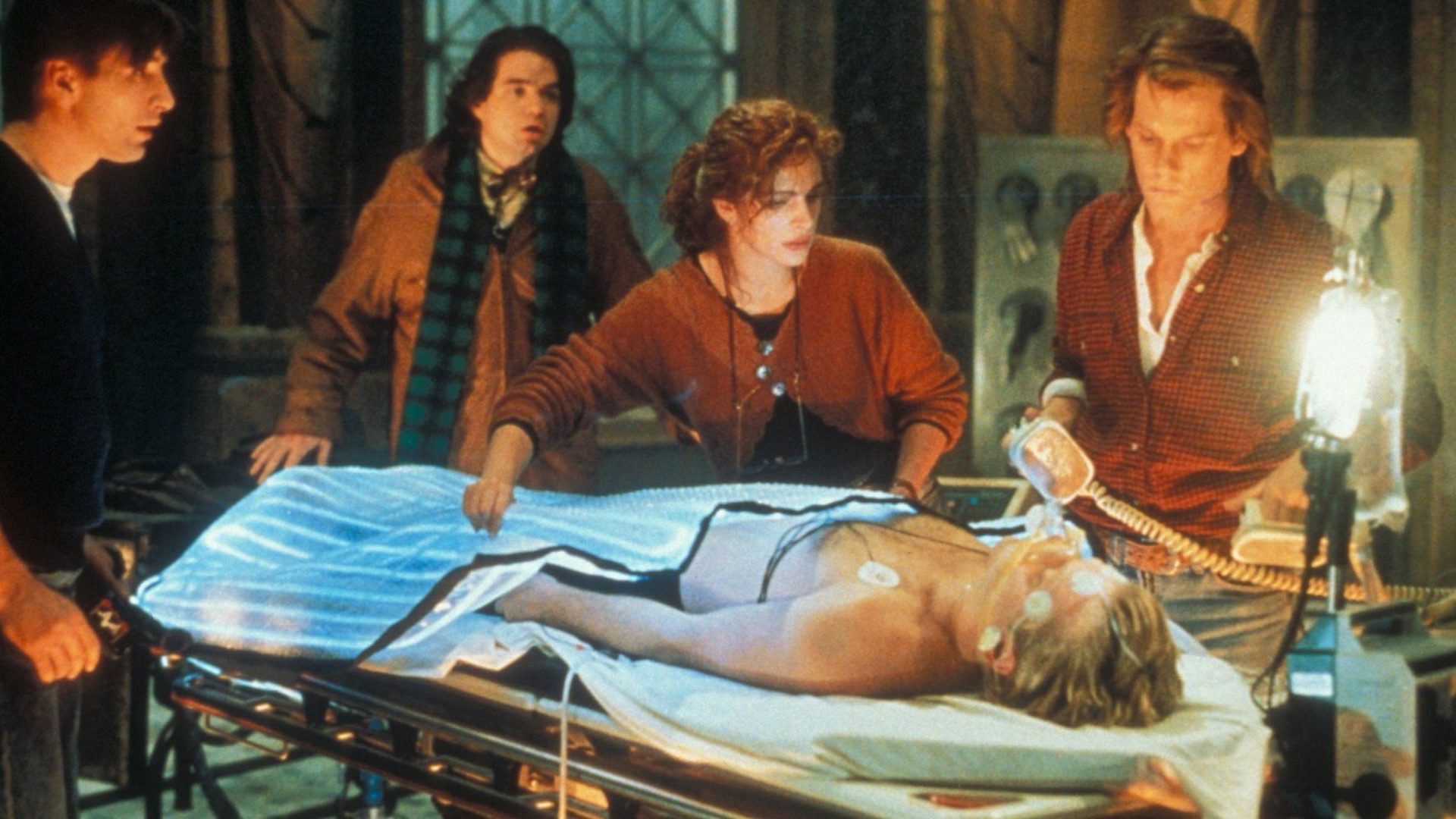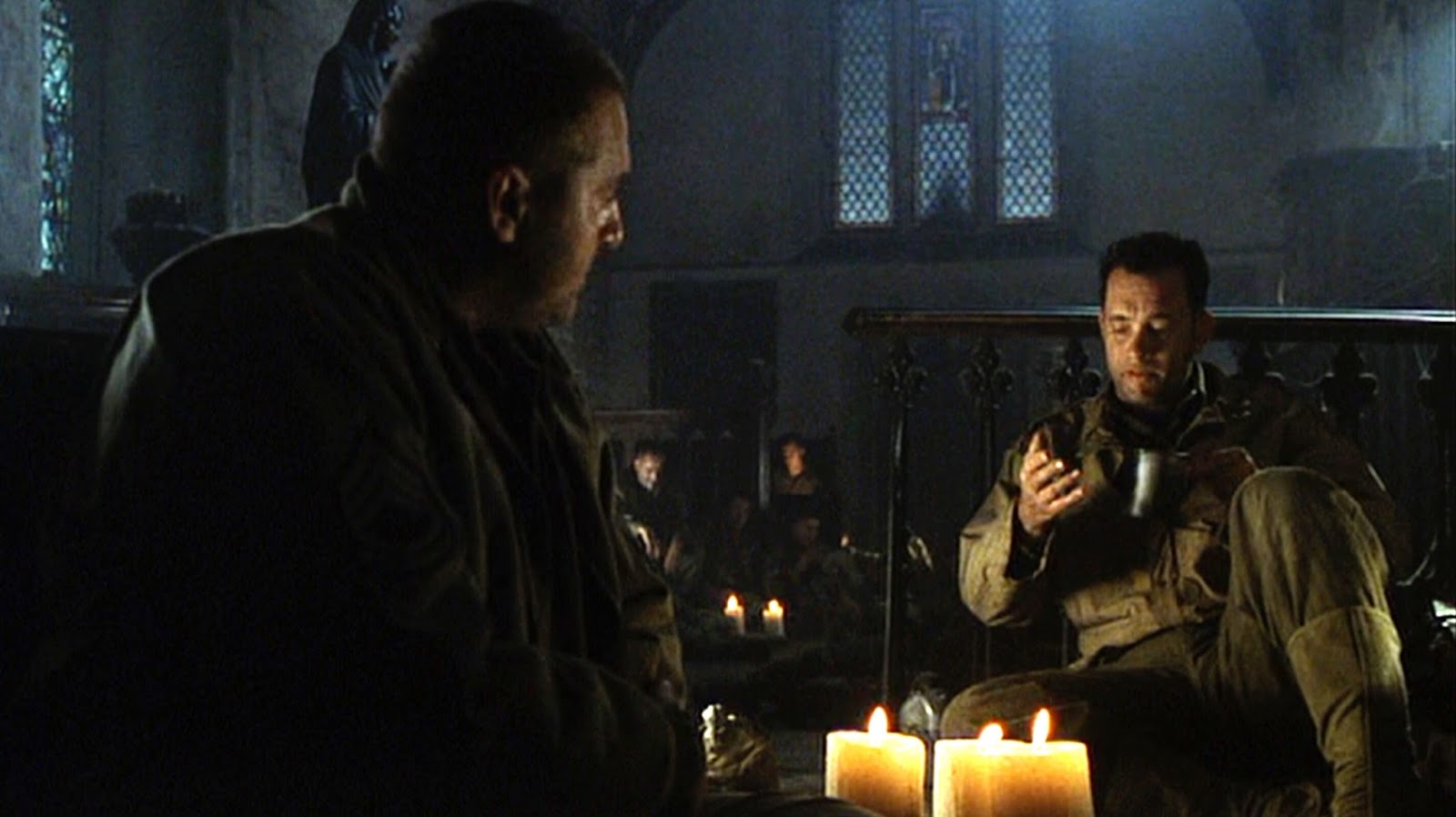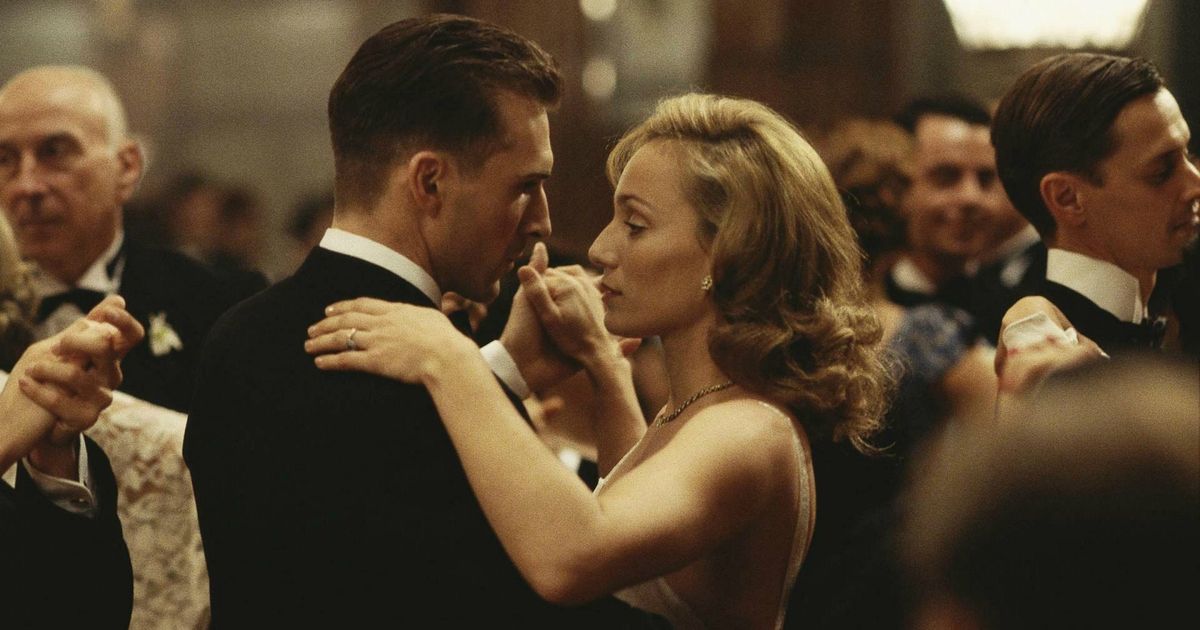Writing this blog is a risk. Talking about movies is easy and, as anyone who knows me can attest, keeping my mouth shut can be a problem. When it comes to talking about stuff that matters, the words often barricade themselves inside.
In my mid-teens, a friend of mine and his cousin took me out late at night to go swimming in a lake I’d never been to. I didn’t have an issue with swimming, late-night or otherwise, as I practically spent every summer hopping back and forth between my grandparents’ camps, but the cousin sprang something on us on the way there. Instead of heading to a beach or a dock, we were on our way to the train tracks, and from there we’d walk to a spot where we could jump off and plunge thirty-plus feet into the water. My balls had barely dropped and now they were desperately trying to climb back into my body.
I never had an issue with heights either, being one of the first of my classmates to jump off the high dive on a school trip to the UMaine swimming pool just three years prior, but as we walked in the darkness into the unfamiliar I could feel all courage leaving me.
My friend jumped without hesitation after his cousin fell from sight. I told him I’d jump shortly after but, as I stood there looking down unable to see where I’d land, I knew without a doubt there was no way in hell I was plunging into the darkness. When they both climbed out of the water I was still frozen in place.
Thankfully neither of them teased me on the way home because, if they had, I would have likely broken down into tears. We returned the following afternoon and, in the light of day, I was able to jump along with them. We spent the day basking in the sun listening to the Steve Miller Band and making the leap whenever we got too hot. To anyone watching, we looked like three young guys having a great day of it, but inside I couldn’t get over how I couldn’t bring myself to jump the night before.
I was never a big risk taker.
When we first meet Nelson Wright (played by Kiefer Sutherland) in the movie Flatliners, he is exactly that, a risk taker. As a medical student, his days are spent facing off against life and death. While he finds thrills at playing God, he needs more. Wright doesn’t just want to experience the battle, he wants to know what lies beyond.
Nelson wants to die. To do so, he knows he’ll need the help of his classmates David Labraccio (Kevin Bacon), Rachel Mannus (Julia Roberts), Joe Hurley (William Baldwin), and Randy Steckle (Oliver Platt). By experiencing death, he hopes to learn beyond and, with his classmates’ help, hopes to not only cheat death but record it for future fame. Despite some difficulty, they manage to achieve “death” after Nelson’s heart stops for one full minute and he is then brought back. Within moments, the hyper-competitiveness of his peers kicks in, and, knowing it’s possible to “die” and come back, they take turns escalating the length of time, often outbidding each other to see who goes next.
But what Nelson hasn’t told them is there’s a price to pay for dying. He’s been having visions and visitations from a specter of his youth and is haunted by it. Aided by director Joel Schumaker and crew’s Uncomfortable Architecture, each set piece fills the screen with sickly colors, concerning statues and art, and empty cavernous settings of their apartments and the city of Chicago. They are in this alone.
As they die and come back, they each experience something unique. For David, it’s a young girl he used to tease. For Rachel, it’s the memory of her father’s suicide. And for Joe, it’s the guilt he feels from unknowingly videotaping a parade of women he’s had sex with. Only Randy, who never experienced death, is spared. Soon they all confide in each other and seek ways to end the nightmares and visions, which for them are completely unexplained.
“It was as if we felt no fear. As if we were already dead, and had nothing to lose by dying. Or perhaps it was because we lived life so well, loved life so much, that we imagined ourselves immortal, overwhelming the powers that be with our passion for science. Or maybe we were just fucked in the head.” –Randy Steckle
When I watched this as a teenager, I was completely fascinated. Despite my own aversion to risk, the thrill of watching some of Hollywood’s most exciting young stars get put through a terrifying emotional wringer was enough for me to rewatch the movie endlessly and even put the movie poster up on my wall where it stayed for well over a year. If I couldn’t be brave, at least I could watch others confront their demons. How cool. For a teenager that sometimes jumped at his own shadow – who frequently feared so much in silence, it was therapeutic to watch people literally look death in the face and come back to tell the story.
As an adult, having worked with traumatized youth for almost a decade, this same movie now gives me insight.
“A child with a complex trauma history may be easily triggered or ‘set off’ and is more likely to react very intensely. The child may struggle with self-regulation (i.e. knowing how to calm down) and may lack impulse control or the ability to think through consequences before acting.”
-From the National Child Traumatic Stress Network
Rewatching Flatliners now, it’s hard not to see most of these characters as a product of trauma, especially Nelson and Rachel. As the movie progresses, we learn that Nelson was responsible for the death of a young friend, having thrown a rock that caused the boy to plummet to his death. For Rachel, it was the memory of finding her father’s body after he shot himself to death. Each of the characters never mentioned the past to their friends, so when the haunting visions began they chose to keep it to themselves. Only David sought out to rectify his demons by contacting the young girl he teased as a boy and apologize to her. Once he does, his terrors end.
The message wasn’t exactly subtle.
But Nelson and Rachal are faced with the question: how do you apologize to the dead? How do you reconcile your trauma and begin to heal if the cause of your trauma cannot accept your apology or apologize to you?
Despite a decade worth of trauma-informed care education and practice, I’m still not the best person to answer that question because I’m still in the process. Before a few years ago I wouldn’t ever have admitted I had experienced trauma, and if I had I would’ve fallen squarely into the “…and I’ve turned out just fine” camp. My trauma was something I kept to myself as a kid and I spent my teenage/early adult years burying it deep until I didn’t even think about it as an adult. The past was the past and talking about it would’ve been seen as a risk to me.
Not that I didn’t try to get it out in other ways. Somewhere buried in my stacks of old writings is a play I wrote when I was 19 or 20 called “The Boy Under the Stairs.” It was an autobiographical monologue of a young boy who, while hiding under the stairs, listens to an argument between his mother and father slowly escalate into an act of violence. At the time I couldn’t tell you why I wrote it, but I’m certain there was an amount of therapy in putting the words on to paper, admitting to myself that it had happened and it was okay that it affected me. However, I was never brave enough to share with anyone else. As I write these words I’m hoping I can dig through my notebooks and find the twenty or so pages that once acted as a confession/cry for help. Part of me is still scared to confront that young boy and offer to share his burden.
While the ending of Flatliners may be cheesy, it’s still an important message to convey and share, and I wish I was smart enough to recognize it back when I was 15. Once the characters begin to share their experiences, talk about them, and look for ways to move on, the nightmares/hauntings/visions stop. They find comfort in each other. To work through trauma, it’s vital to have a support system to help you process what you’re going through, be it in a professional setting or among friends. I’ve never had a therapist myself or anything professional to deal with my trauma. Perhaps I should, but right now I’m comfortable with talking about it, which is a big improvement from years past. Like many others in the social work field, I took a job that allowed me to help others going through many of the same issues, and damn if it didn’t feel good to offer that help. It’s there I also learned a new phrase: secondary trauma. I’m working my way through that, as the related health issues that came along with it put me in a place where people that care about me were genuinely concerned about the lifelong, negative effects that continuing in that field would have on me. This time I listened to the help that was being offered me and that wouldn’t have happened if I hadn’t finally been brave enough to ask for it. As someone who felt for years that people wouldn’t care about my problems, I learned that way more people cared than I could’ve hoped for. I’m a lucky man.
Maybe now I’m a bigger risk taker than I thought. Finding a way to combine my confessions with pop culture would never have come about if another friend hadn’t asked me to create a podcast with him as his way of working through “his shit” and it was his honesty that has helped me share my story with people I’ve never met as well as those who I’m lucky enough to call friends. I still worry about how I’ll be perceived, but I’m hoping that I’ll be lucky enough as I was that night when two buddies didn’t tease me about not jumping into the darkness and instead supported me when I made the jump in the light.
Thanks for jumping with me everyone.
If you or anyone you know is experiencing issues with mental health or trauma, help is out there. Please reach out for assistance. Treatment can provide you with healthy and effective coping skills to help you better deal with the feelings and events that trigger your symptoms. Calling a helpline is often a beneficial first step for starting your recovery.
National Alliance on Mental Illness (NAMI) 1-800-950-NAMI
Substance Abuse and Mental Health 1-800-662-HELP
Services Administration (SMHSA)
National Institute of Mental Health 1-800-615-6464
National Suicide Prevention Lifeline 1-800-273-TALK
Veterans crisis Line 1-800-273-TALK
Crisis Text Line Text HOME to 741741



Another powerful entry sir. One I felt on more levels than I care to admit. Also, really makes we want to revisit Flatliners. It’s been decades.
I feel it still holds up pretty well.
As Thomas notes, this was another powerful piece of writing, Dan. Don’t know what else I can add. Really happy you listened to those who could see the toll the previous job was taking on you. It’s not an easy thing; I know.